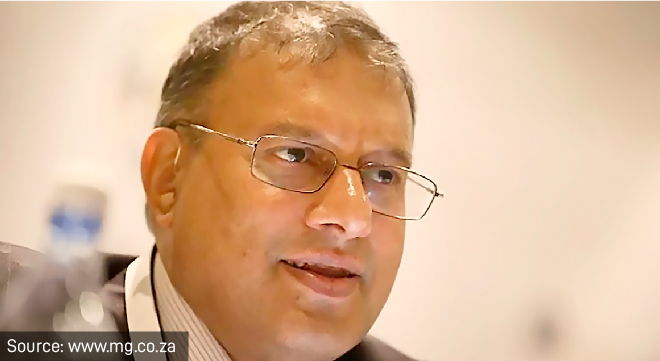National Treasury has reiterated its message that changing legislation will not be enough to avert a potential grey-listing next year; the authorities will have to demonstrate commitment and progress with enforcing legislation aimed at combating financial crimes.
Addressing the National Assembly’s Standing Committee on Finance (Scof) yesterday, Ismail Momoniat, Treasury’s acting director-general, pointed out that making progress with enforcement did not have to wait until legislation was changed – the law enforcement authorities have sufficient powers under the existing legislation. Treasury has been engaging with the relevant authorities on this issue.
Treasury briefed members of Scof on the General Laws (Anti-Money Laundering and Combating Terrorism Financing) Amendment Bill.
Read: Treasury publishes omnibus anti-money laundering bill
The bill addresses 20 “technical” deficiencies in South Africa’s financial crimes legislation that the Financial Action Task Force (FATF) identified in its Mutual Evaluation Report in October last year.
The FATF has 40 recommendations (“standards” would be a better term) that determine whether a country has a comprehensive legislative framework for combating money laundering and terrorism financing.
Treasury said the omnibus amendment bill will address South Africa’s shortcomings in at least 14 of the 20 recommendations.
A separate bill, the Protection of Constitutional Democracy against Terrorist and Related Activities Amendment Bill, which is being steered by the Minister of Police, will address two recommendations.
The remaining four deficiencies will be dealt with via policy processes and mechanisms to be developed by October or November.
‘The tough part’
In addition to its recommendations, the FATF has 11 “immediate outcomes”, which assess how effective a country is in implementing its anti-money laundering legislation.
Momoniat said “the tough part” of fending off grey-listing will be to show that South Africa is making progress on all 11 immediate outcomes.
In a statement on Monday, Treasury said the country will have to demonstrate to the FATF that it has credible national risk assessments to deal with money laundering and terror financing, and that the supervisory authorities in the financial sector and non-financial sectors have appropriate risk-based approaches.
Most importantly, it said, the investigative and prosecuting authorities will have to “demonstrate speedy investigations, prosecutions and asset forfeitures for financial crimes and corruption”.
Last week, Momoniat told the Scof that the prosecuting authorities will have to demonstrate that they are making progress with cases against individuals implicated in state capture.
At yesterday’s meeting, he told MPs it was in South Africa’s own interest to rectify the deficiencies; the remedial measures were not simply to make the FATF happy.
He said the envisaged changes will significantly strengthen the country’s ability to address all types of financial crime in the public and the private sectors.
Momoniat said the FATF’s message was that the lack of effective enforcement “shows we have been too naïve in dealing with criminal syndicates”. The zama zamas (illegal miners) and construction mafias, for example, were highly sophisticated, and the law enforcement and prosecuting authorities needed to show they were working together to combat these syndicates, he said.
Another overlooked weakness was combating terrorism financing. South Africa was gaining a reputation as a safe haven for individuals who were funding terrorist activities elsewhere in Africa and around the world, he said.
In effect by January
Momoniat said the government will now be able to report to FATF that the amendment bills have been tabled, demonstrating its commitment to rectifying the shortcomings.
“We hope to report in December that both bills have been passed.”
He said the bills needed to be in effect by early January 2023. The FATF’s plenary takes place the following month.
Although Treasury believed South Africa could prevent being grey-listed, it needed to look at what would happen if it was. If the country was grey-listed, it would hopefully be for only one or two deficiencies. If that was the case, South African could get off the list within one or two months, Momoniat said.



